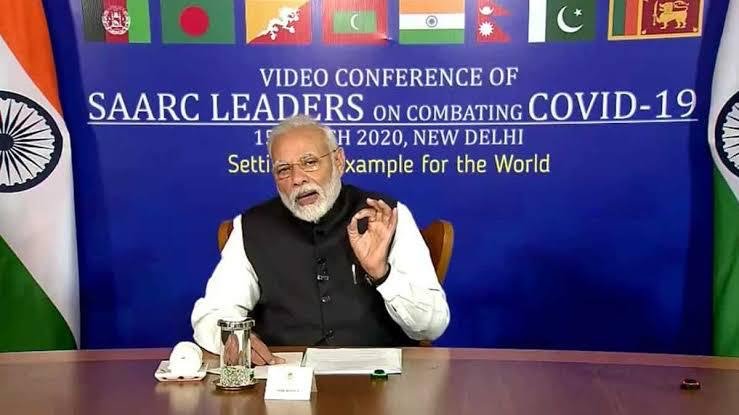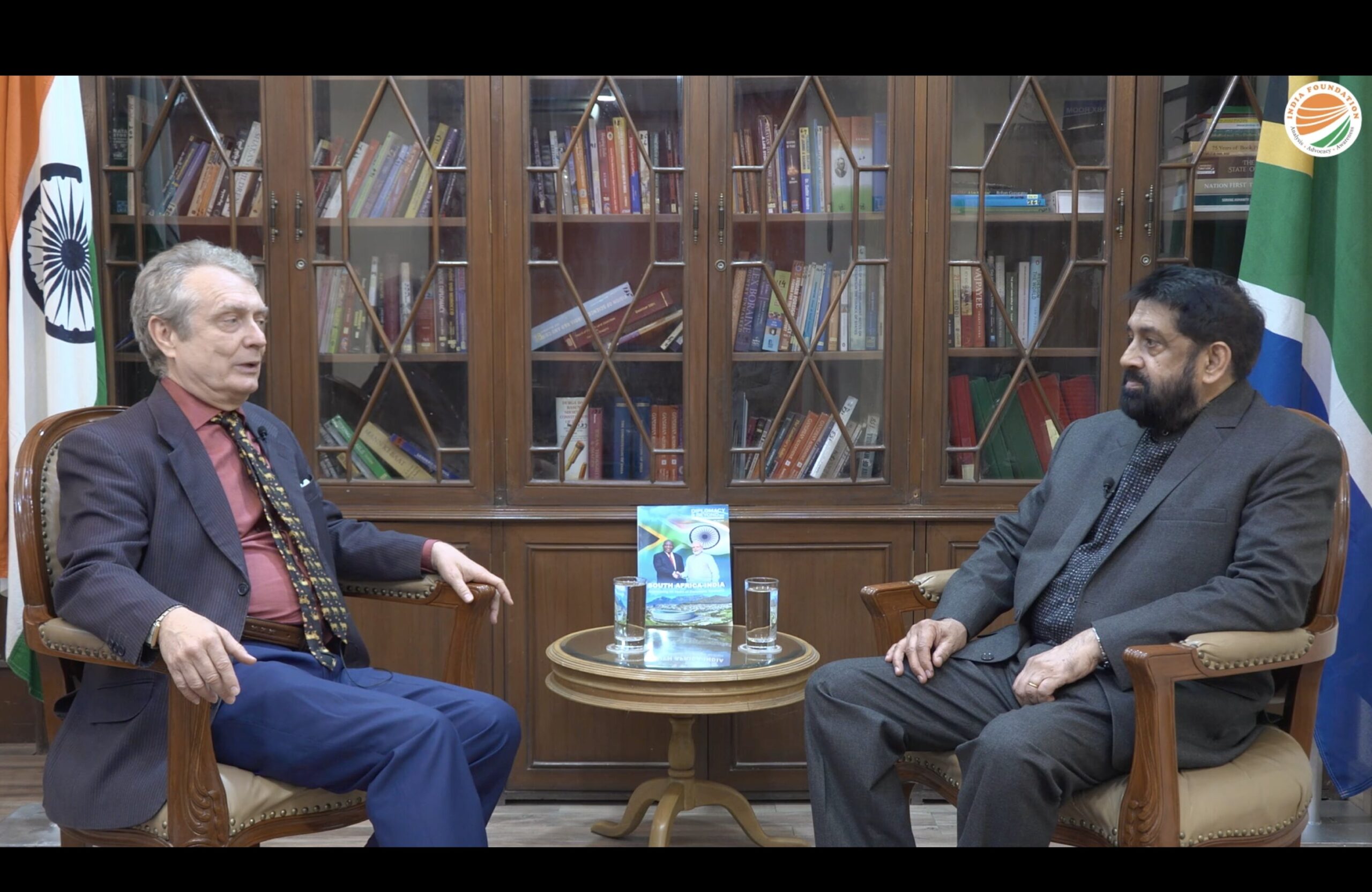It was in 2015 at the National Executive Meet of the Bharatiya Janata Party in Bengaluru that the Prime Minister laid down his vision for India’s rise as a global power. The old and redundant policy of Panchsheel was given a new life by Panchamrit, the 5-S which were to form the pillars of New India’s Foreign Policy. The 5s were “Samman— dignity and honour; Samvad— greater engagement and dialogue; Samriddhi— shared prosperity; Suraksha — regional and global security; and SanskritievamSabhyata — cultural and civilisational linkages”.
The idea was to pave the way for India’s rise as a responsible global power which could hold its place on its own in the world. The resolution laid greater emphasis on engagement with neighbouring countries and the Prime Minister’s emphasis on mutual growth of the region for the benefit of humankind carefully captured in the words “Together we grow” echoed loud and clear.
Ever since then, India has been at the forefront of many Humanitarian Assistance& Disaster Relief (HADR) operations in the neighbourhood, often being the first responder in times of crisis. To name a few, the drinking water crisis in Maldives in 2014 (Operation Neer), devastating earthquakes that shook Nepal in 2015 (OperationMaitri), the floods that ravaged Sri Lanka in 2017 and the lives claimed by cyclone Mora in Bangladesh in the same year. The Indian Government and the Indian defence forces have been steadfast in their efforts in ensuring the provision of net security to the neighbourhood and beyond.
Today, the world is standing at the cross-roads of another such cataclysmic moment where the existence of humankind is put to grave danger by the havoc wreaked by COVID-19, the disease caused by the novel corona virus. The deadly virus has claimed over a hundred thousand lives globally and has infected close to 1.78 million people[i] (Data Source: John Hopkins University).
The disease which was declared as a global pandemic by the World Health Organisation has left the mightiest super powers helpless and has revealed the very norms of interdependence and globalisation that the world follows today. Countries have now become more inward looking with each of them failing to meet their own national needs and grappling with the near in-effectiveness of multilateral institutions.
India, on the other hand, has been able to assert itself as a responsible regional leader by way of being the first responder both domestically and globally. The Prime Minister’s initiative of bringing together SAARC nations on a common platform to work on a regional comprehensive strategy to combat the spread of the deadly virus and pooling together resources by means of a SAARC COVID-19 Emergency Fund were hailed unequivocally.
Putting in action the two pillars of Panchamrit policy of Surakshaand Samvad to ensure global and regional security, moving beyond the conventional physical security to social security and greater engagement by means of reaching out to neighbours in times of need, India was seen as responding to crisis calls from the neighbourhood. A case in point is Maldives, a high end tourism destination with complete dependence on revenues from tourists to sustain its economy. With the world grappling with the disaster of corona virus and tourism industry having taken the biggest hit, the island nation is left to variously look at India and China for help.
According to an Asian Development Bank estimate, Maldives will be one of the worst affected corona-virus hit Asian countries in terms of effect on tourism which accounts for 60% of its foreign exchange earnings as of 2017[ii]. In a press conference Finance Minister has stated that due to an expected decline in tourist arrival by 50% for 2020, there will be a forex shortfall of $ 450. The economy, instead of growing by the earlier expected 7.5%, is likely to contract by 5.6%. To tide over the tight liquidity situation, Government of India is providing $ 150 under the Currency Swap Arrangement between RBI and Maldivian Monetary Authority.
Owing to its isolated geographical location, the Maldivian supply chains have also taken a toll with disruptions leading to lack of availability of essential supplies. Keeping in line with the Government’s agenda of neighbourhood first, India was steadfast in gifting 5.5 tonnes of essential medicines along with facilitating smooth supply of emergency staples including rice and sugar[iii].
With the Maldives being under a national lockdown since March 12, life for an average citizen grew ripe with deficiencies. Problems took a challenging turn when the order for essential medicines including Hydroxylchloroquine, placed by the STO was trapped in various Indian cities after India declared a complete lock down on March 24.
Guided by its ethos of standing by its neighbours, India activated “Operation Sanjeevni” to airlift 6.2 tonnes of essential medicines and hospital consumables from the Indian cities of New Delhi, Mumbai, Chennai and Madurai to Male. In what was a meticulously planned operation, Indian Army, Air Force and authorities of civil aviation and external affairs ministries came together to ensure seamless transportation of these goods from various warehouses in India to the respective airports.
Not only in terms of providing for goods, the Government of India has also shown its commitment to service by stationing a 14 member COVID 19 Rapid response team of doctors and specialists across Male and other islands in order to better prepare for the challenges at hand. 7 Maldivian Nationals were also earlier evacuated from Wuhan on board two Air India flights. The Government of India has also facilitated four chartered Maldivian flights to Kochi, Trivandrum and Bengaluru for evacuation of about 550 Maldivian nationals.
While the humanitarian cooperation between India and Maldives is not new, what this pandemic has put forth is the commitment with which India has moved ahead in shaping a global future on the pillars of peace, partnership and prosperity. The Prime Minister, while addressing the Heads of States/Governments of SAARC Nations had given a call to “Prepare Together, Act Together and Succeed Together”.
Putting his words in practice, the Government of India has prepared with the neighbourhood by taking initiatives such as opening up of virtual dialogues between the health and trade officials of the SAARC nations, and announcing a SAARC COVID-19 Emergency Fund. They are now acting together by extending all possible cooperation to not just its neighbourhood but countries across the Atlantic. What remains to be celebrated is the time when the partners will succeed together.
The author is Senior Research Fellow at India Foundation.
[i]https://coronavirus.jhu.edu/map.html
[ii]https://www.adb.org/sites/default/files/publication/571536/adb-brief-128-economic-impact-covid19-developing-asia.pdf
[iii]https://maldivestimes.com/covid-19-maldives-receives-first-shipment-of-staple-food-from-india/





